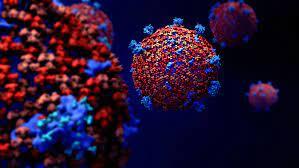The World Health Organization has identified what it says is a Covid-19 variant of interest.
The global health body says it is continuously monitoring the evidence of variant JN.1, which has been classified as a separate variant of interest from the parent lineage BA.2.86, and will update its risk evaluation as needed.
According to WHO, based on the available evidence, the additional global public health risk posed by the variant is currently evaluated as low though its spread is increasing.
It however says the variant could increase the burden of respiratory infections in many countries with the onset of winter in the Northern Hemisphere.
“Based on the available evidence, the additional global public health risk posed by JN.1 is currently evaluated as low. Despite this, with the onset of winter in the Northern Hemisphere, JN.1 could increase the burden of respiratory infections in many countries.” Reads a statement from WHO.
WHO is advising people to take measures to prevent infections and severe disease using all available tools including wearing of masks in crowded, enclosed, or poorly ventilated areas, keeping a safe distance from others, improving ventilation, practicing respiratory etiquette, regularly cleaning of hands, staying up to date with vaccinations against COVID-19 and influenza, especially if you are at high risk for severe disease, staying home if you are sick and getting tested if you have symptoms, or if you might have been exposed to someone with COVID-19 or influenza.
For health workers and health facilities, WHO is calling for universal masking within facilities, as well as appropriate masking, respirators and other PPE for health workers caring for suspected and confirmed COVID-19 patients as well as improvement of ventilation in health facilities.
“COVID-19 is not the only respiratory disease circulating. Influenza, RSV and common childhood pneumonia are on the rise.” Cautions WHO.
According to WHO, current vaccines continue to protect against severe disease and death from JN.1 and other circulating variants of SARS-CoV-2, the virus that causes COVID-19.
Earlier this year, WHO declared Covid-19 pandemic, which for over three years had killed millions of people, wreaked economic havoc and deepened inequalities, across the globe, as no longer constituting a global health emergency.
Kenya had confirmed 344,094 confirmed cases of Covid-19, recorded 5,689 deaths with over 23 million vaccine doses having already administered.
–





